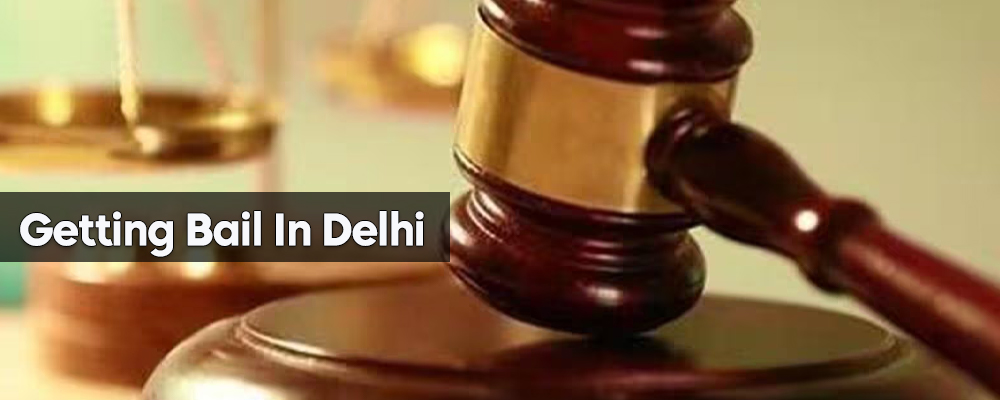In Delhi, a person can get bail by following the legal process provided for in the Indian law. The Indian law provides for different provisions for bail, including:
- Regular Bail: A person can apply for regular bail under Section 437 of the Code of Criminal Procedure (CrPC) when he/she is arrested or detained in a non-bailable offence. To get regular bail, the accused has to approach the court of competent jurisdiction and satisfy the court that he/she is not likely to flee or tamper with the evidence.
- Anticipatory Bail: A person can apply for anticipatory bail under Section 438 of the CrPC when he/she apprehends arrest in a non-bailable offence. The court may grant anticipatory bail if it is satisfied that the accused is not likely to abscond or interfere with the investigation.
- Interim Bail: A person can apply for interim bail when he/she has been granted regular bail, but for some reason, he/she is unable to furnish the surety or security required by the court. The court may grant interim bail for a limited period until the surety or security is furnished.
- Default Bail: A person is entitled to default bail under Section 167(2) of the CrPC when he/she has been in custody for more than 90 days, and the investigation has not been completed by the police. In such a case, the accused is entitled to bail as a matter of right.
Need A Legal Advice
The internet is not a lawyer and neither are you. Talk to a real lawyer about your legal issue

To get bail in Delhi, the accused has to approach the court of competent jurisdiction and apply for bail under the relevant provision of the law. The court will consider various factors, including the nature of the offence, the severity of the punishment, the accused’s past criminal record, and the likelihood of absconding or tampering with the evidence, before granting bail.
There are numerous case laws on bail in India, some of the significant ones are:
- Gudikanti Narasimhulu vs. Public Prosecutor: High Court of Andhra Pradesh: In this case, the Supreme Court held that bail is not to be denied merely because the offence is heinous, but it should be granted unless the accused is likely to abscond, tamper with the evidence or influence the witnesses.
- State of Rajasthan vs. Balchand: The Supreme Court held that the object of bail is to secure the attendance of the accused at the trial and the proper conduct of the case. Therefore, while considering bail, the court has to balance the interests of the accused and the society.
- Sanjay Chandra vs. CBI: In this case, the Supreme Court held that the grant of bail is a rule, and refusal is an exception. The court also held that the economic offence, if not grave, should not be a basis for denying bail.
- Siddharam Satlingappa Mhetre vs. State of Maharashtra: The Supreme Court held that while considering the bail application, the court has to consider the gravity of the offence, the nature of the accusation, the antecedents of the accused, and the possibility of the accused tampering with the evidence or fleeing from justice.
- Arnesh Kumar vs. State of Bihar: The Supreme Court held that in cases where the punishment for the offence is less than seven years, the police should not arrest the accused without conducting a preliminary investigation, and the accused should be given an opportunity to apply for anticipatory bail.
These are some of the significant case laws on bail in India. However, it is essential to note that each case is different, and the decision of the court depends on the facts and circumstances of each case.
The team of Lead India have the Best of the Criminal Lawyers In Delhi, Best of Criminal Lawyers in other cities of India who will help you to get your issue resolved you can connect to lawyers through our website Lead India, where you can ask the free questions, take expert legal advice or hire best lawyers in you city to get you issue resolved.





 Talk to a Lawyer
Talk to a Lawyer